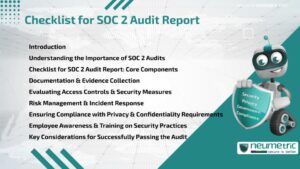Table of Contents
ToggleWhat is a HIPAA Business Associate Agreement [BAA] & why is it necessary?
A HIPAA Business Associate Agreement, often shortened to “BAA”, is a legally binding contract between a HIPAA covered entity & a HIPAA business associate to ensure the proper privacy & security of Protected Health Information [PHI] in accordance with the Health Insurance Portability & Accountability Act [HIPAA].
What is PHI?
Before diving deeper into HIPAA business associate agreements, it’s important to understand what constitutes PHI. PHI stands for Protected Health Information & includes any information about an individual’s health condition, provision of health care or payment for health care that could potentially identify that person.
This encompasses obvious identifiers like names, dates of birth, social security numbers [SSN] & mailing addresses. However, it also includes less obvious data points like geographical subgroups, dates of service, telephone numbers, email addresses, URLs & IP addresses. Any data that could reasonably be used to reveal the identity of a patient alongside their health information is considered PHI under HIPAA.
Some examples of PHI include:
- Names
- Geographic data (state, zip code)
- Dates (birthdates, death dates, ages over 89)
- Telephone numbers
- Biometric data (fingerprints, patient images)
- Health insurance details
- Medical record numbers
- License plate numbers
- Full face photos
If an individual can be identified in conjunction with their health condition, treatment details or payment information, that data would be considered PHI.
HIPAA Covered Entities & Business Associates
The HIPAA Privacy & Security rules apply to covered entities & their business associates.
Covered Entities
Covered entities include health plans, most healthcare providers & health care clearinghouses.
- Health Plans: Any insurer that provides or pays medical expenses, including health insurance companies, HMOs, company health plans, government health plans like Medicare & Medicaid.
- Healthcare Providers: Any provider that furnishes healthcare services or medical care, including doctors, clinics, psychologists, dentists, nursing homes, pharmacies, chiropractors & other caregivers.
- Healthcare Clearinghouses: Organizations that process nonstandard health information from providers into standard code sets & vice versa. Essentially, they facilitate interactions between health plans & providers.
Business Associates
A Business Associate [BA] is any individual or entity that creates, receives, maintains or transmits PHI on behalf of a covered entity while performing services for that covered entity.
Business associates could include lawyers & law firms that have access to PHI, cloud service providers, accounting firms, claims processors, consultants, record storage facilities & more. Essentially any service that requires some level of access to PHI during contracted work would qualify as a BA, even if that access is incidental & not a primary function.
Purpose & Importance of HIPAA Business Associate Agreements
The main purpose of a HIPAA business associate agreement is to ensure third parties handling PHI comply with national health data privacy & security regulations. The HIPAA business associate agreement establishes permitted uses of PHI, physical & technical safeguards, breach notification processes & other protective measures.
Prior to HIPAA, many organizations outsourced key services impacting PHI without sufficient oversight. For example, a cloud backup service may have come across patient data during contracted work but did not necessarily employ privacy protocols.
HIPAA now legally binds these vendors to the same standards through formalized business associate agreements. Ultimately, the covered entity still bears the brunt of compliance, but associating with contractors that refuse to sign HIPAA business associate agreements pose a massive regulatory risk.
Additionally, business associate agreements create accountability beyond the covered entity & outline third-party responsibilities should something go wrong. If an associate experiences a health data breach incident, they would have to follow federally-mandated procedures regarding thorough reporting, investigation & notification processes.
Having clearly defined expectations through a binding contract allows covered entities to preemptively align security strategies. Relying on informal promises leads organizations vulnerable, while mandated HIPAA rules encoded in legal agreements upholds ethics, respect for health privacy & trust between all parties managing sensitive patient data.
HIPAA Regulatory Implications
Failure to comply with HIPAA regulations can result in significant penalties, explaining the importance of fully vetting third parties & having an air-tight BAA in place. Recent updates to the HIPAA audit program have placed increased scrutiny on business associates, not just covered entities.
In fact, a landmark 2013 legal case (Phoenix Cardiac Surgery v. Chandra) set further precedent regarding the liability of subcontractors. A physician group had signed a BAA with an EHR provider (Symantec). However, Symantec then utilized a subcontractor (Phoenix Cardiac Surgery) to carry out e-prescribing services which suffered a data breach.
The court ruled that subcontractors qualify as “agents” under federal law, thus equally subjecting Phoenix Cardiac Surgery to adhere to HIPAA. This case served as a broader warning – all entities that touch PHI could face HIPAA violations, even if they never signed a contract with the initiating covered entity.
As a result, covered entities must ensure oversight all the way down vendor chains through multiple nested business associate agreements in order to minimize risk. The regulatory stakes are extremely high should any link in that healthcare supply chain cause or fail to properly report a breach.
Core Components of a HIPAA Business Associate Agreement
While contracts can vary, most HIPAA business associate agreements will contain the following components:
Definitions
The exact meaning of “business associate”, “covered entity”, “protected health information” [PHI] & other essential terms are clearly defined.
Permitted Uses of PHI
Details limitations of how the business associate is permitted to use & disclose PHI to perform services for the covered entity. Uses & disclosures for the associate’s own purposes are prohibited without patient authorization.
Safeguards
Specific security measures the associate must employ to prevent unauthorized access to PHI are outlined, including administrative, physical & technical safeguards they must implement.
Subcontracting
Stipulates responsibilities & restrictions should an associate hire subcontractors who create, receive, maintain or transmit PHI while delivering contracted services. Subcontractors will require their own BAA.
Breach Notification
Procedures regarding breach incident response are established, including detailed reporting responsibilities for business associates to the covered entity upon discovery of any health data breach.
Termination
Defines procedures for terminating the agreement if either party violates HIPAA regulations – including assurance PHI will be destroyed or returned to the covered entity.
Signature Page
Both parties formally enter into the agreement by affixing signatures & dates. Serves as official acknowledgement of HIPAA liability.
Miscellaneous Provisions
Additional standard legal sections may be included like amendment procedures, interpretation of terms, survival of provisions post termination etc.
Special Case – Qualified Service Organization Agreements
If a business associate provides services involving sensitive substance use disorder treatment records, they may also need to enter into a Qualified Service Organization Agreement [QSOA] in addition to a HIPAA BAA. Unlike HIPAA, the federal confidentiality law 42 CFR Part 2 requires patient consent prior to disclosure of addiction treatment records.
Many healthcare partners will thus require both a HIPAA Business Associate Agreement & a QSOA to ensure compliance across both regulatory programs.
Are Business Associate Agreements Required by Law?
Yes: business associates that have access to PHI are directly subject to HIPAA rules & regulations laid out in the Health Information Technology for Economic & Clinical Health [HITECH] Act. Entities that meet the definition of a BA must enter a contract with the covered entity prior to providing any services that may encounter PHI.
The 2013 Omnibus Rule also updated regulations to clearly state business associates will be directly liable & subject to civil monetary penalties for violations due to willful neglect.
Covered entities that fail to have a satisfactory business associate agreement in place are also subject to penalties of $100 USD to $50,000 USD per violation. As a result, covered entities must ensure any vendor or partner accessing PHI signs on in writing to comply with security protocols before commencing work.
How are Business Associates Identified Under HIPAA?
Figuring out which contractors or partners qualify as a HIPAA business associate is not always straightforward initially. As a rule of thumb, an organization or person is considered a BA if they:
- Create, receive, maintain or transmit PHI on behalf of a CE.
- Provide services to the CE that requires access to PHI.
- Offer services that impact compliance with HIPAA Security & Privacy Rules, such as:
- Data analysis
- Utilization review
- Billing
- Practice management
- Legal services
- Insurance
- Information technology
- Consulting
- Administrative services
Types of access include electronic access to PHI in any format or physical access, such as medical record storage & shredding.
Even partners that do not directly view or store PHI can still meet the definition of a business associate under HIPAA depending on their role. For example, a software vendor that processes credit card payments on behalf of a healthcare provider would qualify. In this case, the vendor may not access the PHI itself, but the service impacts compliance.
See the table below for some examples of common business associates:
| Business Associate Category | Examples |
| Claims Processing | Claims clearinghouse, repricing company, third-party administrators |
| Administrative | Bookkeeping, auditing services, business associates of plan sponsors |
| IT Services | Cloud service providers, data storage companies, help desk, EHR developers |
| Consultants | Utilization review, billing, practice management optimization |
| Patient Care | Home health agency, chronic disease management, health coaching |
| Legal Services | Lawyers, paralegals, court reporters |
| Financial | Banks, financial advisors, accountants |
| Insurance | Stop-loss insurers, HMO reinsurers , workers’ compensation |
| Other Covered Functions | Record storage, shredding, waste management |
Not sure if a contractor qualifies as a HIPAA business associate even after reviewing regulations? The Department of Health & Human Services [HHS] provides guidance on business associate definitions along with case studies & hypothetical examples to further assist covered entities in making proper determinations.
Bottom line – covered entities must take a very broad view of HIPAA business associate requirements when assessing partners to avoid any compliance gaps.
Crafting a HIPAA-Compliant Business Associate Agreement
Putting together a detailed BAA that aligns both parties’ risk management priorities is crucial yet challenging. We outline key steps covered entities should follow when drafting agreements:
- Review data flows: Map out which systems, applications & storage solutions the BA will need access to in order to complete contracted work. Document where PHI is stored at rest, where it flows between systems, data owners & access management protocols.
- Perform due diligence: Vet the associate’s privacy & security posture. Review their risk assessments, audits & any prior breach incidents. Do their policies & controls align with your security standards? What safeguards do they already have in place?
- Analyze risk: Identify BA activities that could potentially put PHI at risk. Develop contingency plans for data breaches, ransomware attacks or other incidents that threaten health data based on these risks. Ensure notification procedures & mitigation strategies are established in policies.
- Establish limitations: Be very specific in permitted uses of PHI & exclude any use not expressly permitted in the agreement to prevent scope creep. Consider data minimization techniques where appropriate.
- Review state laws: While HIPAA establishes a federal floor, state laws can impose additional privacy safeguards. Ensure your agreement satisfies other relevant regulations beyond HIPAA that apply given your jurisdiction.
- Define breach procedures: Clearly outline the required response process should a breach occur, including thorough reporting procedures & reasonable timeframes for business associates to alert the covered entity.
- Review annually: Update the agreement as needed when systems, laws, associate’s services or other aspects change that could impact construction of the agreement.
HIPAA Business Associate Agreement Templates
Crafting agreements from scratch is challenging, so utilizing available templates can expedite the process. However, any template should just serve as a starting point – heavy customization aligned to your specific environment is still essential to address unique risks.
Here are some publicly available resources when drafting your own template:
- HHS Sample Business Associate Agreement Provisions
- American Bar Association Model Business Associate Agreement
Consequences of Non-Compliance
Failure to establish a satisfactory business associate agreement prior to partnering could have steep consequences beyond typical breach incidents.
For example, covered entities may face fines upwards of $1.5 USD million for failing to perform due diligence or implement termination procedures with a non-compliant BA. Business associates could be penalized over $100,000 USD for similar violations.
BA agreements act as a first line of defense in preventing these scenarios, setting clear expectations aligned to federal law. Dedicating resources to review relationships, perform risk analysis & track down partners unwilling to sign will pay dividends in dodging regulatory overhead.
Conclusion
As healthcare continues marching towards digitization, HIPAA business associate agreements uphold ethics respecting privacy while combating risk from third parties. Beyond meeting baseline compliance, these contracts encode trust at the human level between patients, providers & behind-the-scenes partners.
Constructing airtight BAAs certainly demands resources intensive education, policy reviews & technical mapping of data flows. But the alternative of blind partnerships poses financial, legal & reputational threats that could sink entire organizations. Solid contracts sustain that lifeline of patient health data flowing securely across each handoff between healthcare entities.
Key Takeaways
- HIPAA business associate agreements ensure third-parties handling PHI comply with national health data privacy & security regulations
- Associates that create, receive, store or transmit PHI must sign these agreements before performing services
- BAAs establish permitted data uses, physical & technical safeguards, breach notification processes & other protective measures
- Covered entities could face over $1.5 USD Million in fines for failure to validate associate compliance
- HHS audits increasingly target business associates for decentralized accountability
FAQ
Here are answers to some frequently asked questions about HIPAA business associate agreements:
What are some common examples of business associates?
Some common examples include cloud service providers, claims processing companies, lawyers & law firms that access PHI, accounting firms, consultants improving health IT systems, record storage facilities & more. Essentially any service that requires some level of PHI access to perform contractual work.
Can we just use our general service agreement instead of a BAA?
No. The BAA must directly address HIPAA-specific regulations around use & disclosure of PHI to meet compliance standards. A general services contract does not include these same protections.
Does our business associate’s subcontractor need a BAA?
Yes. Your primary BA must receive written assurance through nested BAAs that any subcontractor further down the chain also reasonably safeguards PHI. The sub-BA has no direct contract with the originating covered entity though.
What rights do individuals have in relation to a business associate’s use of their PHI?
Individuals retain the right to receive an accounting of PHI disclosures from a business associate upon request, ask for restrictions or amendments to data & file HIPAA complaints related to any mismanagement of their health records.
If our business associate causes a breach, are we liable?
It depends. Under HITECH, business associates have their own burden of compliance & can face civil monetary penalties directly for willful neglect violations. However, the covered entity still has an overall legal duty to ensure protection of PHI, so they may share in liability costs.





